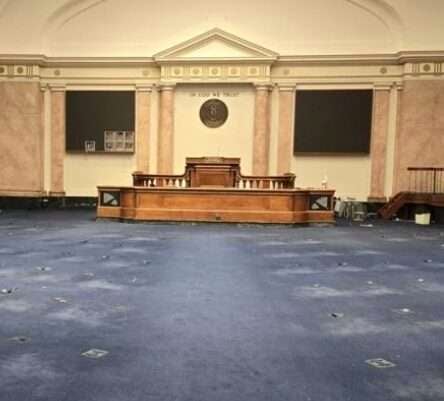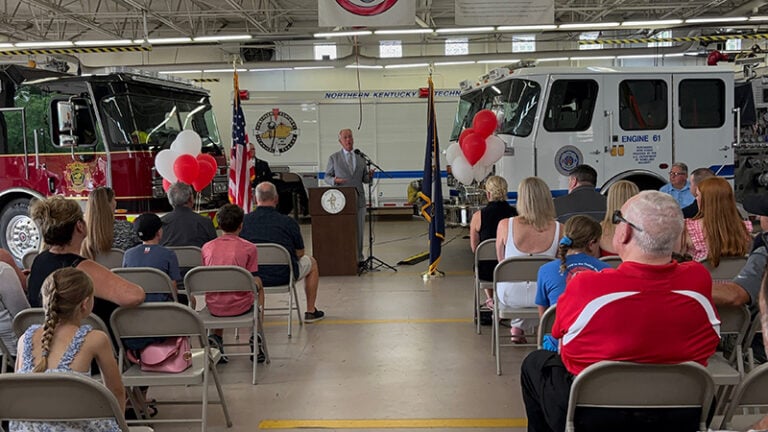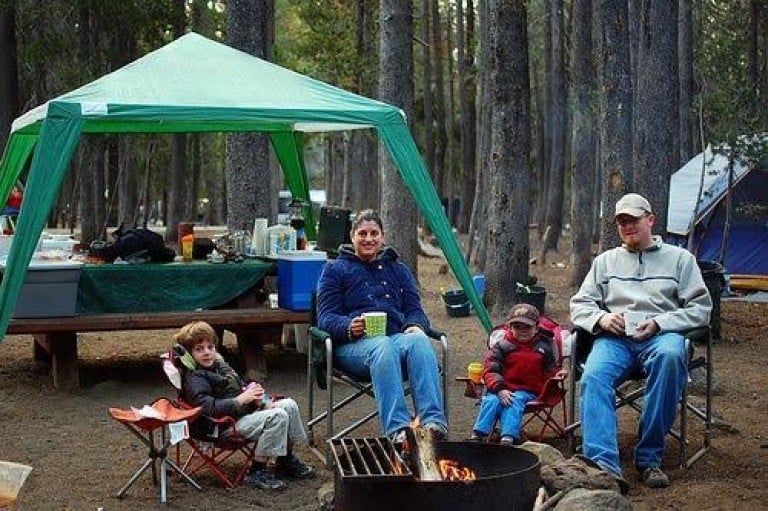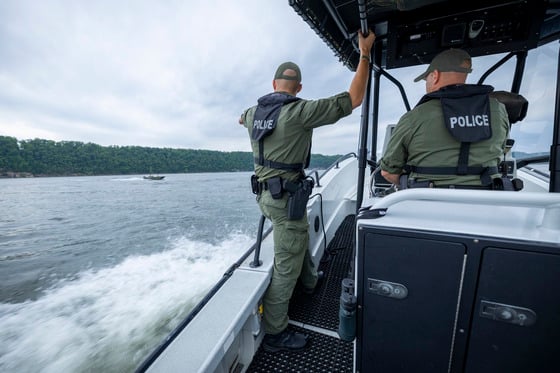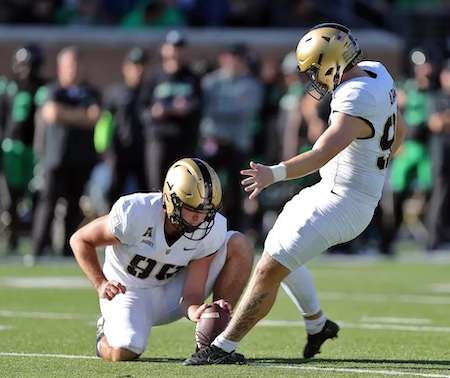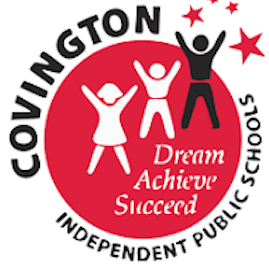By Howard Whiteman
Murray State University
Taking a jog along the country roads near my house brings out a mix of emotions. The dry weather has started to turn the trees earlier than normal, and you can literally feel hunting season just around the corner. Even in all the heat, the occasional rain fills the senses with the smell of the woods in fall, but the sounds of insects buzzing in the trees reminds us that there is still plenty of summer left.
My emotions are always mixed, however, because of the roadside view. Trash seems to accumulate constantly, and particularly after a weekend of people visiting the nearby lake.
It’s here and there, but more than enough to notice. Cans, bottles, food wrappers, fast food bags, and cigarette butts become part of the forest edge. It’s a depressing sight that tempers the wonders of all seasons.
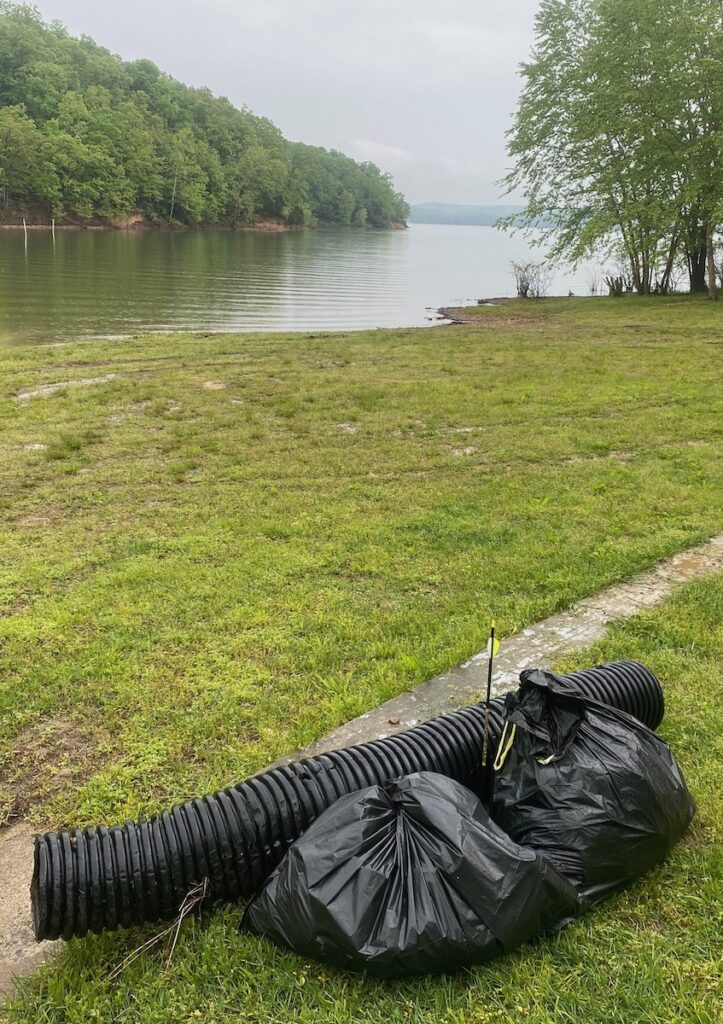
Trash doesn’t just accumulate on our country roads and city streets. I’ve found bottles, cans, and candy wrappers in wilderness areas, not to mention the occasional abandoned campsite with garbage strewn everywhere. Balloons from birthday parties that were miles away land next to pristine lakes, where used fishing line accumulates on the shore. Some of it is worse than others, but it is all trash.
When we litter, even with a gum wrapper or a cigarette butt, we are not respecting nature, nor our fellow humans. It doesn’t matter if you are aware of your own behavior or not, it is still a lack of respect. Someone who casually tosses trash in the back of their pickup and doesn’t wonder where it all went to by the time they got home is not being as respectful to the environment as they could be. Nor are parents that fail to teach their kids to clean up their own messes, or friends who don’t call each other out when they toss garbage onto the street.
Trash has consequences as well. Microplastics from our garbage has been found everywhere, from the North Pole to inside our bodies. PFAS, which are chemicals within many household products, now appear in the bloodstreams of 97% humans, the fish we eat, and other animals. We are just now learning about their negative consequences. Is this the planet we want our children and grandchildren to inherit?
If you have had enough of all this trash, and are ready to do something about it, I have the perfect opportunity for you, your family, and your friends, but it might mean a bit of traveling.
On Saturday, September 14, there is a Four Rivers Cleanup on Kentucky Lake, hosted by Murray State’s Hancock Biological Station (HBS) and Watershed Studies Institute (WSI) and the Kentucky Waterways Alliance (KWA). KWA has been doing these cleanups around the Commonwealth this year, one each in the seven major river basins as part of their “Commonwealth Sweep” program.
This next cleanup is from 8:30-9 a.m. at HBS (561 Emma Drive, Murray). Welcome and safety instructions will be at 9:15 a.m., and the cleanup ends at noon. From 12:30-2:30 p.m. there will be a free fish fry for all volunteers. To be part of the fun you have to register ahead of time here or kwalliance.org/events.
This is a great opportunity to help clean up our mess, and do the right thing for the environment. If you are guilty of littering (aren’t we all at some point?), you can consider this as a way of making amends for past mistakes. But if you can’t get to HBS for the Kentucky Lake cleanup that weekend, think about joining another KWA cleanup, or organizing your own with friends, and do your part to help clean up the mess.
Imagine if everyone spent a few hours each year picking up trash in their neighborhood, our local parks, along the roads and trails of our parks and recreation areas and on the margins of our lakes and rivers.
Maybe you already take a garbage bag with you during your evening walk, or you carry a grocery bag on a hike and see how long it takes to fill it, perhaps even recycling (!) what you can. Many people do this already — the volunteers from churches, schools, scouts, and other groups that donate their time to clean up part of our world. Think about how much cleaner our planet would be, how much better off the animals and plants and other people around us would be, if everyone chipped in.
Now imagine if just a few of us organized an event like the Four Rivers Cleanup, and encouraged everyone to join. Add a fish fry or a potluck, and the event is not just a clean-up, it is a community party, where we meet and talk to friends and neighbors, both old and new.
Think about how much trash could be removed, how much better things would look, and how much healthier we all might be. Now is your chance, on September 14.
I hope to meet you there, with a trash bag in my hand. But if I don’t, maybe you will find your own clean up and run into a lot of other like-minded people, ready to clean up the mess.
Howard Whiteman is a professor in the Department of Biological Sciences at Murray State University and Director of the Watershed Studies Institute. He holds the Commonwalth Endowed Chair of Environmental Studies.









